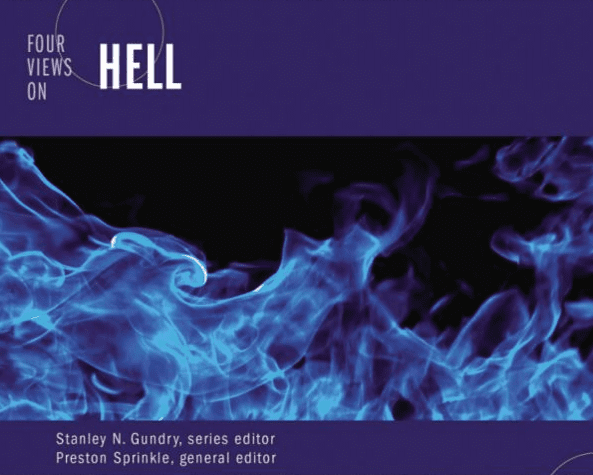Repainting Hell: The End of Evil (Jeff Cook)
As Thomas Aquinas once offered five ways to know a God exists, so too I hope to offer five ways to know that hell is not “eternal conscious torment.” Like Aquinas, my arguments will be philosophical in nature. Though I think there are many solid biblical reasons for rejecting the traditional view of hell, these arguments will be based on deductive thinking—the first of which is here.
A second worthy reason to reject the traditional view of hell is that it leaves one corner of the cosmos contaminated with evil. But given who God is, this view does not stand.
We might say it this way: If God is supremely good and powerful, then God would have the ability and motivation to eventually end evil, but the traditional view has God intentionally allowing the reign of sin to persist.
This seems a significant problem. If hell is eternal conscious torment, evil itself will never cease affecting God’s creation. That is, if the traditional view of hell is true, God’s creation will be tainted by the fruit and work of sin forever. But given who God is, this possibility does not stand.
New Testament scholar Richard Bauckham rightly reflects that “the victory the Messiah has won is the eschatological event, but it cannot have reached its goal until evil is abolished.” If hell is eternal conscious torment than clearly “some” of God’s creation is still infected by the reign of sin and rebellion, and this gives us good reason to think the traditional view of hell fails as a worthy view of judgment and the future.
So how should we interpret hell? The annihilationists have worthy responses to why God makes hell—the destruction of a human soul—a possibility. One such line of thinking might go like this:
(1) God wrongs no one by creating them and giving them a finite life.
(2) Assuming a human soul wants no part of God’s future, God’s graciousness is displayed both in their birth (being created is a good thing) and in their annihilation (forcing their souls to continue on as a slave to sin for eternity would have been a bad thing).
(3) God has created hell because hell is a tool for ending evil in a decisive act of judgment and annihilation.
These are big claims which I unpack further in my book “Everything New,” but for now I contend that the existence of evil gives us a good reason to reject hell as eternal conscious torment:
A good, significantly powerful and knowledgeable God would eventually destroy evil; the traditional view of hell, in contrast, has God creating space for evil to remain. As such we have a good argument for rejecting the traditional view of hell as eternal conscious torment.
Jeff Cook teaches philosophy at the University of Northern Colorado. He is the author of Everything New: Reimagining Heaven and Hell(Subversive 2012), and a pastor of Atlas Church in Greeley, Colorado. You can connect with him at everythingnew.org and @jeffvcook.











